Political dynasties get opportunities in the era of democracy, precisely because democracy in Indonesia is very procedural.
Every time before elections, political dynasties always become a hot issue. Pros and cons are inevitable. Although on the surface it may not seem like there is any turmoil within political parties that practice political dynasty, it cannot be denied that there is anxiety among some of its members who feel a sense of injustice. The situation is similar to a long queue in the middle of a traffic jam that suddenly gets cut off by a police-escorted vehicle.
As an important pillar of democracy, elections/pilkada are actually a leadership succession system that provides equal opportunities to all citizens, especially to political party cadres. Ideally achieved status would be the in determining potential successors and not ascribed status.
Consolidation of democracy through direct elections/pilkada does not
occur, the elites and actors involved in elections/pilkada hinder (constraining) rather than encourage the democratic process.
However, in neopatrimonial societies, ascribed status in the form of political dynasties is often difficult to prevent. One of them is because the recruitment and cadre formation system in political parties is relatively closed. Political parties do not yet have standard criteria for determining elite recruitment. This is not like in bureaucracies or large companies which already have certain standards and criteria for determining employee promotions.
Political dynasty
Political dynasty is a strategy to maintain power within the family circle. Political dynasties tend to create a multiplication of actors (actors who only emerge within the dynasty circle), rather than actor pluralism (actors who emerge tend to be varied from various backgrounds).
Political dynasties are actually a manifestation of neopatrimonialism Regeneration of power is not carried out through appointment as in a patrimonial society, but through procedeur demokraci The leadership is elected by the people, but the issue that determines who the candidate is is the political party.
Why do political dynasties spread in Indonesia? Looking at Indonesia cannot be separated from regions. Regions with their diverse local cultural values provide different nuances. However, one thing remains the same, almost no region is exempt from the legacy of feudal values, patrimonialism practices, patronage, and communal characteristics that tend to be very permissive.
According to Weber, patrimonialism is a system of governance that is based on administrative and military personnel who are only accountable to the ruler. Meanwhile, neopatrimonialism is a modern form of traditional patrimonial mixed rule. Here, patrimonial and rational bureaucratic elements live side by side and are interconnected.
In the Indonesian context, the legacy of the existing value system could not be completely eliminated when democracy was implemented in this country since 1998. As a consequence, political dynasties have had their opportunities in the democratic era, precisely because the democracy implemented in Indonesia is very procedural in nature and tends to reflect amix model /hybrid system.
In a patrimonial system, all power relations, both political and administrative, are personal in nature. There is no difference between the private and public sectors. In a neopatrimonial system, although there is theoretically a distinction between the private and public sectors, in reality it is often difficult to differentiate. A mixed system occurs with personal and legal-rational relationships.he multiparty system and the practice of direct presidential elections since 2004/direct regional elections since 2005 on the one hand have relatively increased people's political participation, but on the other hand have also given rise to quite serious deviations or distortions that have hampered
Consolidation of democracy through direct elections/pilkada does not occur, the elites and actors involved in elections/pilkada hinder rather than encourage the democratic process. In a number of regional elections, for example, regional election conflicts and/or riots were actually triggered by clashes between elites who were not prepared to lose. Unfortunately, the practice of direct regional elections is carried out without political morals, resulting in an opportunistic nature, behavior that justifies all means (transactional politics, money politics) which has negative implications for the results of regional elections, including the emergence of regional authorities who do not or do not side with the people.
Elections that aim to choose competent, integrous leaders who are capable of advancing the country/region have been distorted into a mere political arena for elites to gain power for their own interests, their groups' interests, and also to build dynasties.
The lack of law enforcement and the ongoing practice of procedural democracy provide a field for the growth and development of political dynasties because they allow entrenched powers to further establish their foothold in politics and government.
Is political dynasty a normal occurrence in a democracy? Logically, the democratic system should provide equal opportunities for citizens to vote and be elected. Therefore, the democratic system is expected to be able to stop or reduce the tendency of political dynasties or nepotism in politics that practice a system that is less transparent and accountable. The problem is, if democracy actually increases political dynasties, then a paradox of democracy occurs. What is wrong with our democracy?
Why does democracy not correlate positively with improving transparency and accountability? On the contrary, it has actually given rise to political and economic forces colluding to exploit regions.
In the case of Indonesia, several regions tend to be vulnerable to practicing political dynasties due to regional failures in building democracy that strengthens good governance, namely participatory, transparent and accountable. Surprisingly, this distortion was not corrected immediately, but instead seemed to be left behind, resulting in quite serious accumulations whose destructive power became increasingly evident, in fact this political dynasty spread like a virus to almost all regions in Indonesia.
According to records from the Ministry of Home Affairs, there were 60 (11 percent) cases of political dynasty during the direct regional elections era from 2005 to 2014. The number tended to increase during 2015-2018 to 117 (21.5 percent) and in 2020 it increased to 175 (32 percent).
Experience of other countries
The practice of political dynasties in developed and developing countries is different. Political dynasties that exist in developed countries, with more firmeddemocratic systems, provide sufficient competition space that does not threaten democracy. Apart from that, with a good legal system and law enforcement and good political institutions, political dynasties do not have a place. This can be seen in the United States through the Kennedy and Bush clans.
The practice of political dynasties in developing countries such as India (Gandhi), Pakistan (Bhutto), Thailand (Thienthong and Sinawatra), and the Philippines (Bongbong Marcos Jr and Sara Duterte) is interesting to observe as a comparative perspective. In these countries, as in Indonesia, the emergence of political dynasties is also inevitable.
The characteristics of political dynasties in developing countries tend to be influenced by old inherited culture/traditions/values such as feudalism, patrimonialism, and/or patron-client relationships, resulting in a tree of power whose branches and twigs are controlled by certain families. The practice of political dynasties in Indonesia has existed before, its embryos metamorphosed, grew and developed in the reform era because democracy was unable to break the chain of past values which were a prerequisite for the growth and development of democratic values as a whole.
With the local community's low level of education and economic backwardness, it is possible for larger political dynasties to be built. The weakness of local state society allows political dynasty buildings to exist without any significant resistance. Manipulation of the democratic political system occurs, in the name of political dynasties, where politicians/elites inherit/give their power to only their relatives who are considered more trusted (trusted) than other people.
Substantive and quality democracy
The requirements for a democratic and high-quality implementation of elections must fulfill several aspects: the organizers (KPU and Bawaslu) must be professional and politically independent/neutral (non-partisan). The monitoring must be effective so that violations and deviations are minimal.
In addition, there are several important things that are needed. First, political parties as participants in elections/election of regional heads adhere to regulations and do not justify all means (political collusion, vote buying) to win. Second, functional, professional, and non-partisan law enforcement institutions. Third, intelligent society (voters), they choose not because they are mobilized and paid. Fourth, the cost of elections of regional heads is not expensive: starting from candidacy, campaign until disputes of the election.
Fifth, the bureaucracy is not intervened/co-opted by candidates in elections/pilkada, and the bureaucracy is not divided by the interests of the candidates. Sixth, the candidates campaign responsibly/with quality, do not lie to the public and do not spread the wind of heaven or sell only number one soy sauce. Seventh, elections/pilkada do not end in conflict with violent nuances or chaos. Eighth, the results of the regional elections are positively correlated with the realization of good governance and producing a government with governability.
Ideal solution
To prevent the hijacking of democracy by corrupt practices, collusion, and nepotism through political dynasties, relying solely on the Election/Locarl Election Law as a legal umbrella is not enough. Concrete law enforcement is needed that is capable of imposing penalties (such as disqualification) without discrimination against violators. Therefore, it is expected that the Bawaslu, both at the center and the regions, can effectively supervise and administratively penalize participants who violate the law.
An effective solution to political dynasties needs to be carried out through political party reform. Political parties must carry out cadre cadre formation and promotion systems correctly that refer to the merit system, are transparent and accountable. The selection of potential leaders and their supervision as a mechanism to maintain the quality (quality control) of cadres must always be carried out by political parties.
With that said, there is no one who suddenly becomes a candidate for party chairman or regional head and presidential candidate. In this way, anyone can participate in politics, including the child of a party chairman or president, but they must go through a filtering process in stages like what happens in the bureaucracy.
Apart from that, support and encouragement from civil society is needed through its pressure imperative so that all stakeholders related to democracy, especially elections and local elections (political parties) obey all the rules of the game and are ready to accept punishment. if it violates. Increase the number of democracy/election volunteers to oversee all democratization/election processes so that election/pilkada distortions can be reduced.
Campuses should be at the forefront of enlightening the people and driving the improvement of the quality of democracy. Civil society is expected to become a watch dog (guardian of morals) and play an important role in preventing the development of political dynasties and rampant acts of corruption in Indonesia.
It is time for civil society to build new strength to prevent the spread of corruption and political dynasties through inter-NGO networks and academics as its main nodes.
Closing
Democratic and high-quality elections are a crucial prerequisite for good governance. Furthermore, it is hoped that elections can produce innovative leaders who are capable of improving the quality of public services and positively impacting the implementation of decentralization and regional autonomy by realizing the welfare of the people.
Therefore,
the design/mechanism and practice of elections/local elections must
consider their implications on the government, society, and the
integrity of the Indonesian nation/unity. Elections/local elections
should be able to produce trustworthy leaders who have a high commitment
to uphold the law and eradicate corruption. Indonesia needs a leader
who is capable of advancing and prospering the people, in the form of a
competent, charismatic and statesman-like leader who can advance the
people, not a ruler who only harms the people.
R Siri Juhro Research Professor at the National Research and Innovation Agency (BRIN)


























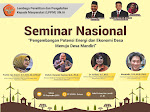
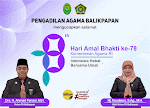










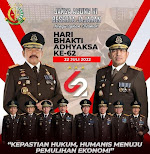





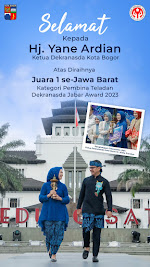


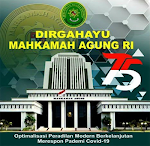











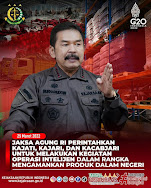
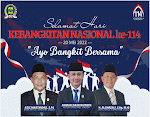

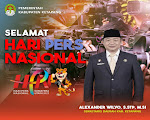






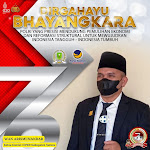








0 comments:
Post a Comment